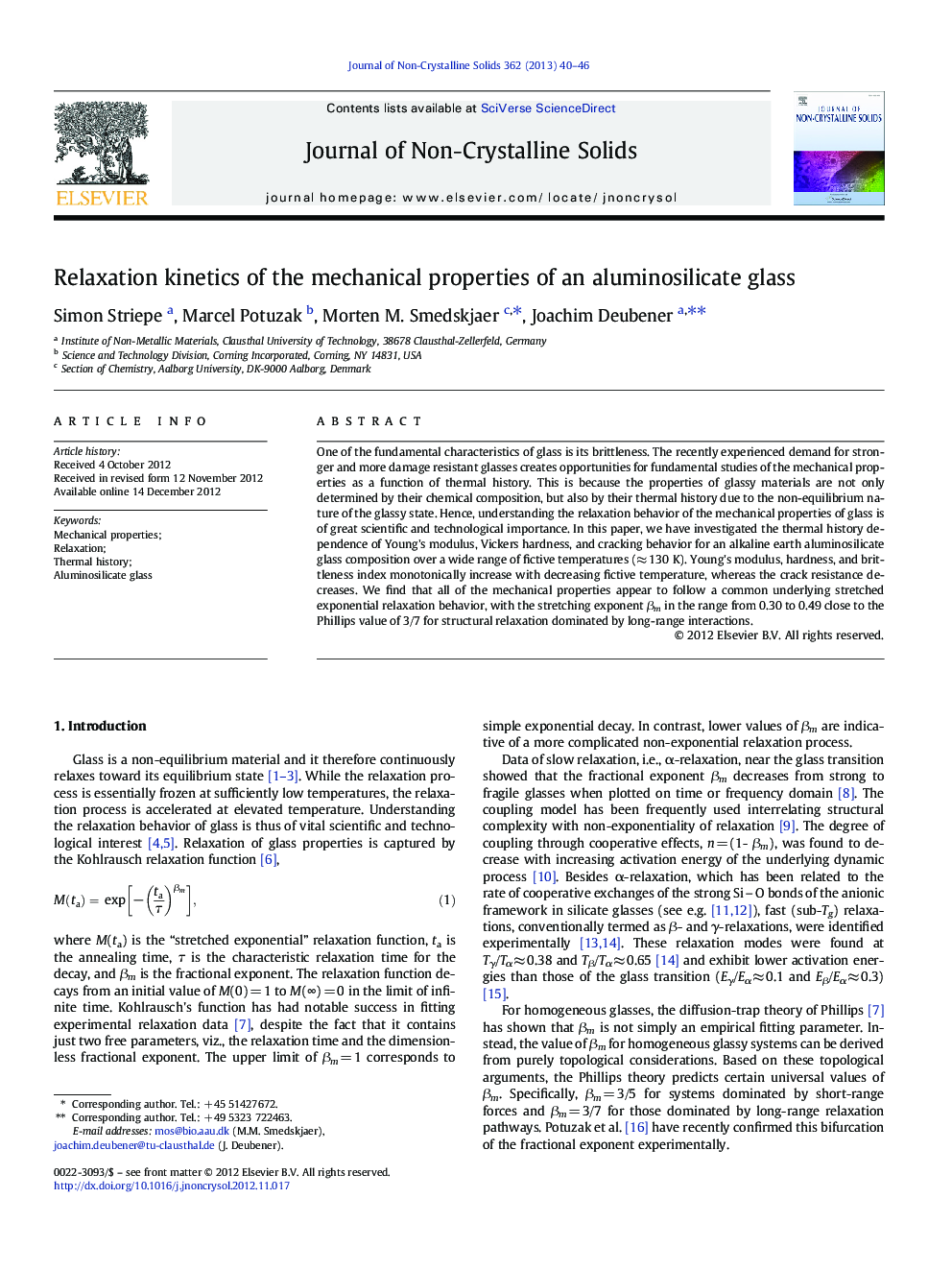| Article ID | Journal | Published Year | Pages | File Type |
|---|---|---|---|---|
| 1481447 | Journal of Non-Crystalline Solids | 2013 | 7 Pages |
One of the fundamental characteristics of glass is its brittleness. The recently experienced demand for stronger and more damage resistant glasses creates opportunities for fundamental studies of the mechanical properties as a function of thermal history. This is because the properties of glassy materials are not only determined by their chemical composition, but also by their thermal history due to the non-equilibrium nature of the glassy state. Hence, understanding the relaxation behavior of the mechanical properties of glass is of great scientific and technological importance. In this paper, we have investigated the thermal history dependence of Young's modulus, Vickers hardness, and cracking behavior for an alkaline earth aluminosilicate glass composition over a wide range of fictive temperatures (≈ 130 K). Young's modulus, hardness, and brittleness index monotonically increase with decreasing fictive temperature, whereas the crack resistance decreases. We find that all of the mechanical properties appear to follow a common underlying stretched exponential relaxation behavior, with the stretching exponent βm in the range from 0.30 to 0.49 close to the Phillips value of 3/7 for structural relaxation dominated by long-range interactions.
► We study the thermal history dependence of the glass mechanical properties. ► An aluminosilicate glass is investigated over ~ 130 K range of fictive temperature (Tf). ► Young's modulus, hardness, and brittleness increase with decreasing Tf. ► Mechanical properties follow a common stretched exponential relaxation behavior.
